Resources
Wabash Center Co-Sponsored Mini-Workshop at2019 ETS Annual Meeting San Diego, CaliforniaThursday, November 213:00 PM to 6:10 PMGrand Hyatt – La Jolla A“Improving Pedagogy in Higher Education Classrooms & Spiritual Formation in and through the Classroom”ModeratorsJonathan Pennington, The Southern Baptist Theological SeminaryPaul Myhre*, Wabash Center3:00 PM to 3:25 PMSmall Teaching StrategiesJonathan Pennington, The Southern Baptist Theological Seminary3:25 PM to 3:50 PMTeaching TacticsPaul Myhre*, Wabash Center3:50 PM to 4:15 PMOpen Dialogue4:15 PM to 4:40 PMPedagogy and Spiritual Formation in an Ecclesial ContextJT English*, The Village Church4:40 PM to 5:05 PMPedagogy and Christian Formation in an Institutional ContextKristen Deede Johnson*, Western Theological Seminary5:05 PM to 5:30 PMPedagogy and Moral Formation in the ClassroomKeith E. Johnson, CRU/Reformed Theological Seminary5:30 PM to 6:10 PMOpen Dialogue
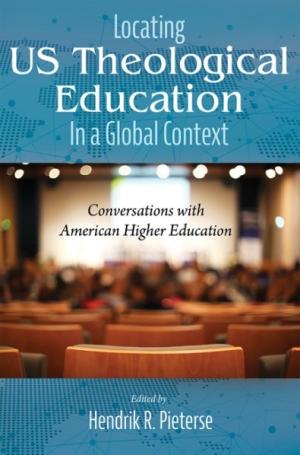
Theological education in the United States finds itself in untested circumstances today. Rapid social change is creating an increasing multicultural, multiracial, and multireligious context for leadership formation. At the same time, international enrollment, cross-border educational initiatives, student and faculty exchanges, and more are connecting US theological schools with a global community of Christian teaching and learning. How do US theological institutions “locate” themselves within this global ecology of theological formation so as to be both responsible participants and creative shapers within it? That is, how do they discern their proper place and role? It is questions like these that the contributors to this volume explore. Building on the decades-long discussion about the globalization of US theological education, this book argues that, in engaging such questions, US theological institutions have much to gain from a sustained conversation with the burgeoning literature on the internationalization of American higher education. This research offers theological institutions a trove of insights and cautionary tales as they seek to discern their rightful place and role in educating leaders in and for a global Christian church. (From the Publisher)
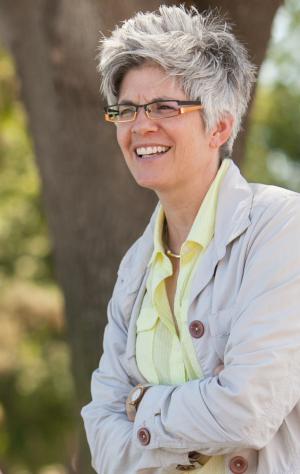
I have often assumed that students have more facility with technology than I do. Unfortunately, this assumption has been wrong and student learning has paid the price. So now, when there is likely to be a steep learning curve for some students relative to equipment (like recording on the iPhone) or a platform (like Vimeo) or learning management system (like Moodle), I integrate facility with technology into course assignments. For example, in a semester-long, face-to-face preaching course, students must record and post their third sermons into Moodle after preaching them in a local congregation. Unfortunately, I realized that even with weeks (if not months) of notice that such a requirement is upon them, many students would spend more time worrying about equipment failure than the sermon itself. Then after preaching they would spend hours trying to upload their sermon onto a video sharing platform only to run into trouble posting on the university’s learning management system. Even more, my teaching assistants’ available hours were being used up troubleshooting for anxious students and tech-savvy students were reaching the end of their willingness to assist classmates (and ashamed to admit some resentment). Clearly an interruption in the cycle was needed and the onus was on me to be the interrupter. What follows is an iteration of my new m.o. I continue the practice of letting students know early in the semester (essentially, the first day) that they will be responsible for recording and posting sermons. But now, my very next sentence is, “And, know that by the time you get to sermon three you will have had numerous opportunities to increase your facility with the technology that is needed to fulfill that part of the assignment.” At that point, I turn the class over to a teaching assistant who introduces herself, articulates the extent to which she will be available to provide tech assistance, notes the portion of the syllabus that clearly outlines the technological requirements for the course, and distributes a “how to record and post videos of sermons” handout. Perhaps the most helpful change I made was to adapt an assignment in week three. I replaced the typical online text-based discussion forum with a visual post. In other words, instead of typing their response to the weeks’ reading, they posted a two-minute video. While this low-stakes assignment had a desired deadline, students were not penalized if they were late if they were having tech troubles. The TA was available to meet with students in pairs or groups of three to assist with their recordings and postings. Lo and behold, the discussion on the material was already beginning as students honed their recorded reflections. This assignment gave us a sense of how many (and who) might need additional tech assistance. We set up out-of-class tutoring sessions accordingly. By this point, everyone had already succeeded, albeit with some assistance.. Additional unforeseen blessings were 1) the posts were much more animated and creative than usual, which yielded more engaging discussion threads; and 2) students had begun to overcome the squeamishness of seeing themselves on video and hearing their recorded voices. A second major change is one I wish I would have discovered a decade ago. For the first two sermons in the class, I would operate the camera and a teaching assistant would post the videos. Of course, I got into this habit because I started teaching preaching before everyone carried around their own device (yes, there was such a time!). Now that nearly (!) everyone has such equipment readily available, it would be a wasted learning opportunity for students (and a waste of my energy and time) not to utilize it. Therefore, every student takes responsibility for being the camera operator for one peer. Not only is this valuable for the camera operator, but an additional benefit is that the preacher practices communicating his/her needs (e.g., location of camera, desired angle), which is good preparation for enlisting a helper in the congregation. While the stakes are getting higher, we set up a backup camera just in case a preacher forgets to charge his battery or a fellow classmate forgets to push “record.” Once again students have to transfer the digital recording to a platform that can be easily accessed on Moodle. At this point, we review and emphasize the handout’s recommended privacy settings. After repeating this process for one additional in-class sermon, students are well prepared to plan for recording sermon three. They are enjoying a sense of accomplishment and getting credit for it! Even more, they can now focus on preparing faithful and impactful sermons for the congregational setting, instead of anxiously anticipating their technical demands.
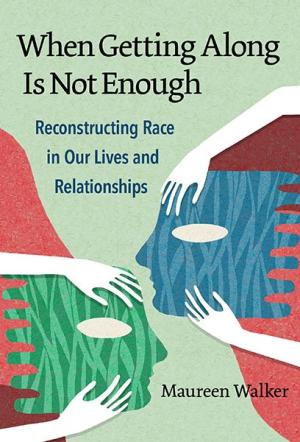
Now more than ever, race has become a morphing relational dynamic that has less to do with the demographic census box we check and more with how we make sense of our lives—who we are and who we can become in relationships with others. Using anecdotes from her practice as a licensed psychologist and as an African American growing up in the South, Walker provides a way for educators and social service professionals to enter into cross-racial discussions about race and race relations. She identifies three essential relational skills for personal transformation and cultural healing that are the foundations for repairing the damage wrought by racism. While Walker does not sugarcoat the destructive history of racism that we all inherit in the United States, the book’s vision is ultimately affirming, empowering, hopeful, and inclusive about the individual and collective power to heal our divisions and disconnections. Book Features: - Presents a new way of understanding race as a relational dynamic and racism as a symptom of disconnection. - Synthesizes, for the first time, two important systems of thought: relational-cultural theory and race/social identity theory. - Includes “Pause to Reflect” exercises designed to stimulate group conversations in book clubs, social justice groups, staff development, classrooms, and workplace training. - Offers practical, everyday solutions for people of different races to better understand and accept one another. (From the Publisher)
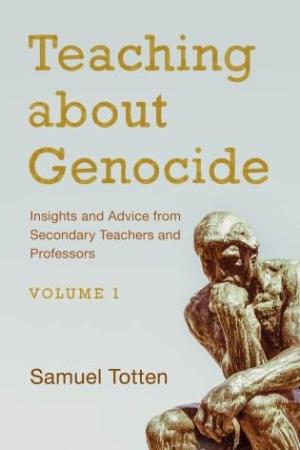
Secondary level teachers and professors from various disciplines present their best advice and insights into teaching about various facets of genocide and/or delineate actual lessons they have taught that have been particularly successful with their students. (From the Publisher)
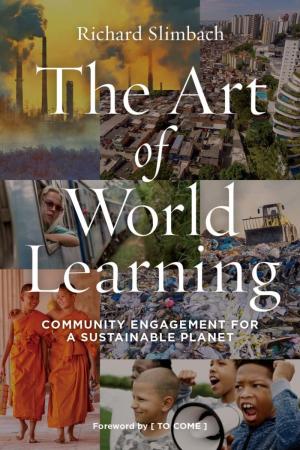
This is a visionary, consciousness-raising book that asks us to rethink the purposes and design of study away and study abroad experiences in the context of a broadened set of global threats, including climate disruption, soaring inequality, ecosystem breakdown, the dying off of distinct languages and cultural communities, and the threat of a nuclear catastrophe. As we ask students to truly comprehend this world from the privileged perspective of the global North, Rich Slimbach asks us to consider two fundamental questions: What and how should we learn? And having learned, for what should we use what we know? A panoply of pedagogies and methods of inquiry – from study away/abroad and service-based learning to diversity programming, environmental education, and community-based research – aim to develop students who both understand the challenges faced by global communities and act in ways that advance their social and environmental health. What temperaments, social habits, and intellectual abilities will they need to help heal their corner of creation? And what pedagogical perspectives, principles, and procedures can best support them in this creative challenge? Rich Slimbach argues that transforming student consciousness and life choices requires a global learning curriculum that integrates multi-disciplinary inquiry into the structural causes of problems that riddle the common good, along with mechanisms that bid students to cross borders, to pay attention, and to listen to those unlike themselves. At its heart, this book proposes a truly transformative approach to community-engaged global learning. (From the Publisher)
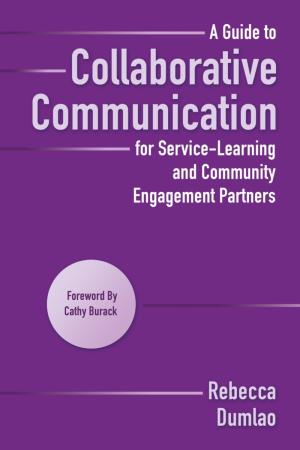
This book focuses on partnerships at the most basic level of interaction – between two people as they work toward common goals. Interpersonal dynamics described in this book are intended to guide formal and institutional relationships between members of a community or community organization on the one hand and representatives from campus on the other. Collaborative communication principles and practices shared can form a foundation for individuals to build flexible, lasting relationships that will weather most challenges and sustain the larger partnerships of their respective organizations.This book offers a conceptual framework of collaborative communication to build and sustain partnerships, recognizing that relationships change over time as the people involved and their circumstances evolve. Collaborative communication uses a repertoire of knowledge and skills that allow partners to make choices that fit their situation or context and to work through differences and challenges as they occur, to include managing conflict and navigating cultural differences. It further takes into account the different means of communication, whether face-to-face, using e-mail, text messaging, or social media. Readers will appreciate the numerous real world examples that illustrate and bring its key concepts to life.This book is addressed to partners at all levels focused on community engagement and service-learning. It is intended for preparing college students to work more effectively in the community, as well as for workshops for community and campus members who work with service-learning students. It can equally be used in leadership workshops in academic and community settings. Scholars, students, or community members involved in community engaged research will also find useable ideas for their work.The appendices offer an annotated bibliography of useful resources and provide readers with a repertoire of activities for building a collaborative communication repertoire. (From the Publisher)
A grassroots and network-based effort to promote the design of research-based learning environments. Supports the scaled implementation and research related to Universal Design for Learning. Promotes the identification and development of models, tools, research, and practices designed to foster effective UDL implementation in educational environments.